Scottish schools must crack the code on digital learning
The following Editorial appeared in The Herald on 21 October 2020 as part of their ongoing series about the Future of Education.
With the aim of providing every young person in Scotland with the skillsets to thrive in the digital era, Digital Xtra Fund’s Kraig Brown envisions a future where every pupil can play a part in the online revolution. By Andrew Collier
COMPUTING studies have long been a subject of intense debate within Scottish education. At a time when digital skills have never been more important, the number of secondary school teachers having this as their main subject has dropped by more than 20 per cent in the last decade or so. This represents nothing less than a core deficiency, as pupils lacking a solid grounding in computing and IT are at a distinct disadvantage when they go on to further or higher education or a job.
Various attempts have been made to resolve the issue, including a 2014 plan by Skills Development Scotland and ScotlandIS. The Logan Review [Scottish Technology Ecosystem Review], published a few weeks ago, called for computing science to be treated as an essential subject in the same way as maths and physics. By and large Logan has been well received, though some within the sector feel that its ambitions could have gone further. Among them is Digital Xtra Fund, a Scottish charity created in 2016.
Primarily backed by business partners including Baillie Gifford and Skyscanner, it provides grants to schools and organisations and aims to inspire the next generation to understand and create with technology. Its Partnerships & Development Manager, Kraig Brown, is highly supportive of Logan but believes that one important element is missing. He is concerned that it does not sufficiently address the issue of teaching computing at primary level, particularly through extracurricular activities.
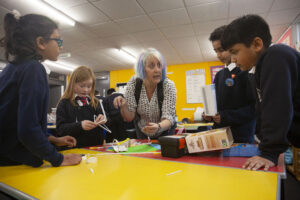
“Logan talks about treating computing science like maths and formally teaching it from first year at secondary school”, he says. “I’m particularly interested in how we approach digital skills at the primary school level.
“The report should have included another recommendation stating that a focused and coordinated campaign to upskill all primary school teachers in Scotland in digital skills needs to be undertaken, starting at P5-P7.”
In addition, he says, teachers should be given examples and partnerships to demonstrate how computing skills relate to the real world from the perspective of a primary age pupil. Brown thinks that an introduction to computing at primary level will help to focus the thoughts of pupils at a critical time in their development. “I agree that it needs to be mandatory from S1.
“However, if you do this, you’re still not going to win over the hearts and minds of young people, and particularly young girls. Even by then, they have a stereotypical impression of what a career [in tech] is.” He strongly believes that coding should be taught at primary level.
“I understand that’s easier said than done, and teachers aren’t as confident about this as they probably could be, though some do a fantastic job at this. Again, P5 to P7 would be a good place to start.” Learning basic coding, Brown adds, is no more difficult than learning to read.
“I have a distinct memory at the age of seven or eight of learning to code using Logo on an early Apple computer and the feeling of ‘I did that!’ which came with it. If someone had also told me at that time about the kind of future I could have had with these skills, it would have blown my mind. Why is it that 30 years later we are going backwards at a time when the world becomes more digital?”
Creating linkages between teachers and industry has obvious advantages, though he recognises the scale of the challenge. “A big part of what I try to do is to get our partners involved with the extracurricular activities.
“That’s a lot easier said than done, though. People are working in their Monday to Friday jobs and they maybe aren’t as confident stepping in front of a group of 11 year olds as they would be appearing in the boardroom. They’re not sure how to teach or approach those children and they absolutely do need help from the teachers. But the teachers also need to know how to work that into their time, which is at a premium.
“We do need to do this though. I appreciate that may mean a couple of other things need to be bumped out [of the teaching programme] and not everyone is going to agree with that. But the way the world is going, we have to do it – if we don’t our young people will be left behind. Leaving it until S1 is too late.”
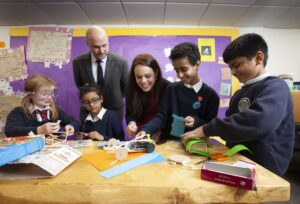 If this approach is to succeed, he concedes, it will need support from the very top.
If this approach is to succeed, he concedes, it will need support from the very top.
“Head teachers and deputy heads would need to buy into it before the teachers, but they need resources given to them by Education Scotland, by local authorities, and by the Scottish Government and the SQA.
“There are also plenty of other organisations that could get involved, he adds. “There’s the Edinburgh Science Festival, science clubs – there are loads of bodies that could help. I would love every school in Scotland, both primary and secondary, to have a coding club.”
He also believes that this primary-led approach could help address the gender imbalance in computing as long as it is presented correctly. “Demonstrating the use of technology for good is a brilliant way of engaging more young women – most girls respond better to collaboration and improving their communities.
“If we can apply tech to those concepts, I think we will immediately see an uptick in the number of young females that are interested in it.”
Brown also believes the education system needs not to view technology in isolation, but to recognise it blends into other areas. “You can incorporate it into other things – digital creativity is huge. Being able to code is only half the battle. Being able to come up with something to code is potentially more important. That’s where creativity comes into play – being able to see where technology fits into what we do now.
“Sitting young people down and teaching them commands isn’t going to work. It’s got to be fun. They need to be able to say ‘that’s cool – I’ve done this’ and then ask themselves what’s next.”



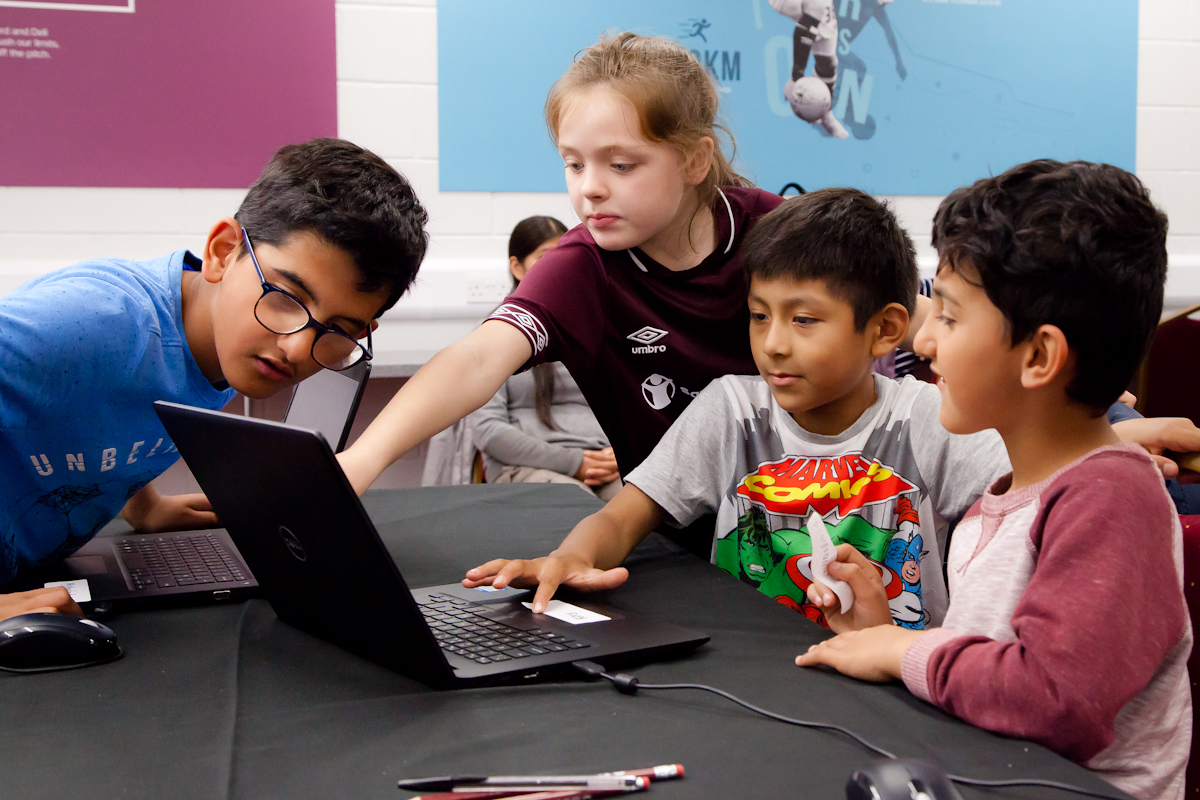
 This announcement comes hot on the heels of The Scottish Government’s ‘Report on STEM in early years of education’ which found that gender imbalances and disadvantages from living in areas of deprivation or rural isolation are creating serious barriers to engaging young people in STEM (Science, Technology, Engineering, Maths). It also highlights that systemic change is required to overcome these barriers and an increased focus on long-term interventions in school and early learning settings – including through extracurricular activities. Digital Xtra Fund emphasises awarding grants for initiatives that target girls and young women or are delivered in areas of high deprivation or rural settings.
This announcement comes hot on the heels of The Scottish Government’s ‘Report on STEM in early years of education’ which found that gender imbalances and disadvantages from living in areas of deprivation or rural isolation are creating serious barriers to engaging young people in STEM (Science, Technology, Engineering, Maths). It also highlights that systemic change is required to overcome these barriers and an increased focus on long-term interventions in school and early learning settings – including through extracurricular activities. Digital Xtra Fund emphasises awarding grants for initiatives that target girls and young women or are delivered in areas of high deprivation or rural settings.


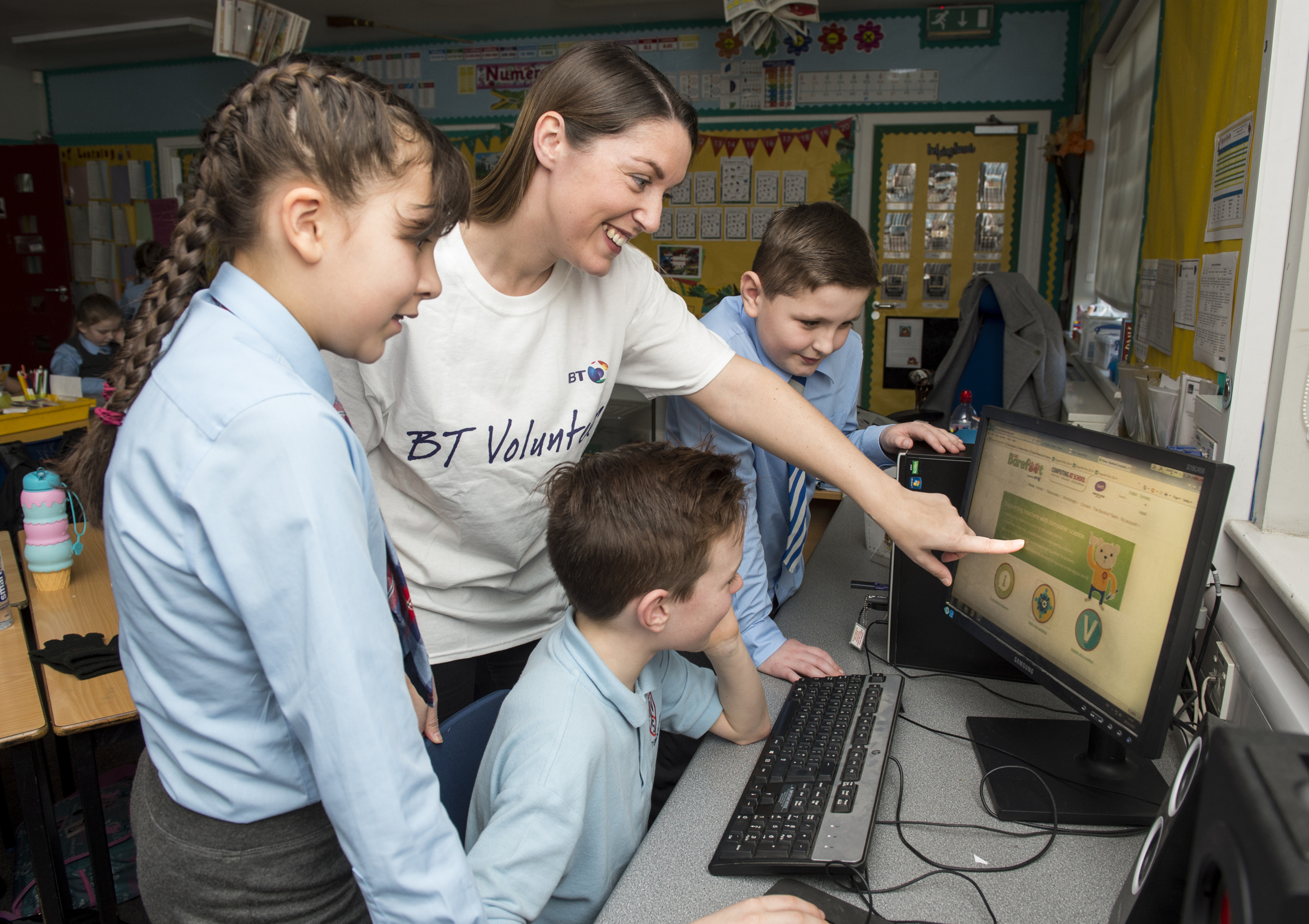


 “There isn’t always an option for young people to learn advanced digital skills at school, and this is why our funding is so important, as it opens up additional opportunities for young people across a wide range of backgrounds.
“There isn’t always an option for young people to learn advanced digital skills at school, and this is why our funding is so important, as it opens up additional opportunities for young people across a wide range of backgrounds. Speaking at today’s announcement of the 22 recipients for 2019, the Minister said, “Technology is fundamental to young people’s lives and having digital skills opens up so many opportunities. We want to build a nation where all young people are comfortable using technology whatever their background. Digital Xtra Fund is a great example of different organisations working together to realise these ambitions. I look forward to seeing the initiatives supported by Digital Xtra Fund develop and I’m certain that they will help inspire the next generation of digital experts.”
Speaking at today’s announcement of the 22 recipients for 2019, the Minister said, “Technology is fundamental to young people’s lives and having digital skills opens up so many opportunities. We want to build a nation where all young people are comfortable using technology whatever their background. Digital Xtra Fund is a great example of different organisations working together to realise these ambitions. I look forward to seeing the initiatives supported by Digital Xtra Fund develop and I’m certain that they will help inspire the next generation of digital experts.”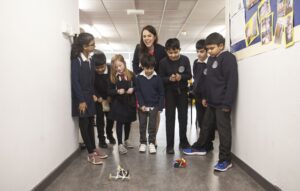 Digital Xtra Fund brings together businesses, organisations, and individuals with a common will to help young people succeed in a digital world through an annual grant awards programme. Key Partners include J.P. Morgan, Skills Development Scotland, Skyscanner, and the Scottish Government, as well as Accenture, Baillie Gifford, BT Scotland, CityFibre, Fujitsu, Incremental Group, Micro:bit Educational Foundation, Microsoft, ScotlandIS, Sky UK, and Zonal.
Digital Xtra Fund brings together businesses, organisations, and individuals with a common will to help young people succeed in a digital world through an annual grant awards programme. Key Partners include J.P. Morgan, Skills Development Scotland, Skyscanner, and the Scottish Government, as well as Accenture, Baillie Gifford, BT Scotland, CityFibre, Fujitsu, Incremental Group, Micro:bit Educational Foundation, Microsoft, ScotlandIS, Sky UK, and Zonal.
 On 30 August, Digital Xtra Fund will launch its next round of funding with a total of £75,000 available. Grants of up to £5,000 will be awarded to extracurricular activity providers that teach skills such as coding, data science, and computational thinking and help inspire Scotland’s next generation of designers, developers, and digital technologists.
On 30 August, Digital Xtra Fund will launch its next round of funding with a total of £75,000 available. Grants of up to £5,000 will be awarded to extracurricular activity providers that teach skills such as coding, data science, and computational thinking and help inspire Scotland’s next generation of designers, developers, and digital technologists.
 Digital Xtra Fund brings together businesses, organisations, and individuals with a common will to help young people succeed in a digital world through an annual grant awards programme. Key Partners include
Digital Xtra Fund brings together businesses, organisations, and individuals with a common will to help young people succeed in a digital world through an annual grant awards programme. Key Partners include 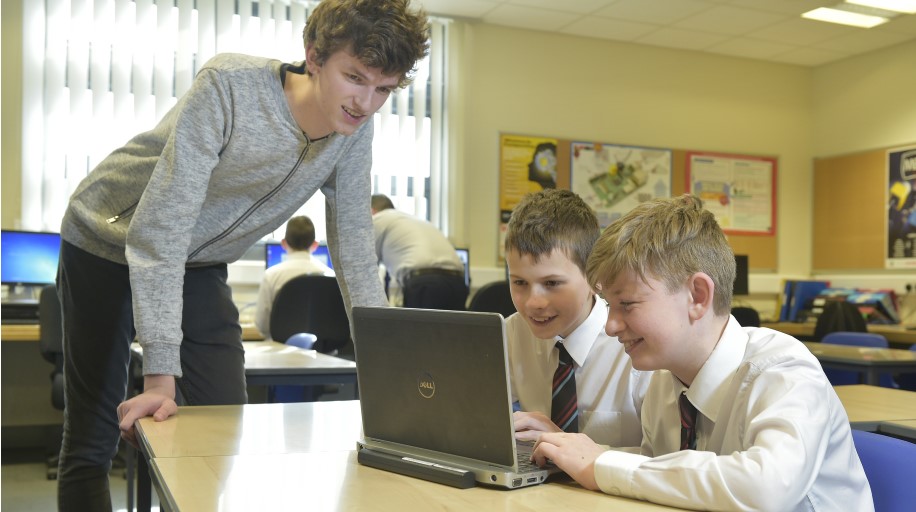
 The Renfrewshire Coding Clubs are aimed at S1 and S2 pupils who will soon be thinking about their elective subject choices. The afterschool Coding Clubs deliver activities in a fun and informal way that engages young people, builds their skills, and stimulates their interest in computing science and digital technologies. Senior staff from the College’s computing faculty work with a team of West College Scotland STEM Ambassadors to run the weekly clubs, recruited from the College’s HNC and HND students. This provides the students with a unique opportunity to share their knowledge and enthusiasm for computing science with school pupils, while giving the college students valuable work experience that supports their current studies and their future careers in STEM.
The Renfrewshire Coding Clubs are aimed at S1 and S2 pupils who will soon be thinking about their elective subject choices. The afterschool Coding Clubs deliver activities in a fun and informal way that engages young people, builds their skills, and stimulates their interest in computing science and digital technologies. Senior staff from the College’s computing faculty work with a team of West College Scotland STEM Ambassadors to run the weekly clubs, recruited from the College’s HNC and HND students. This provides the students with a unique opportunity to share their knowledge and enthusiasm for computing science with school pupils, while giving the college students valuable work experience that supports their current studies and their future careers in STEM. Alongside the Coding Clubs, West College Scotland has also delivered CPD sessions in association with Microsoft Education, Renfrewshire Council, and Paisley YMCA to Renfrewshire primary and secondary school teachers. Focused on increasing the teachers’ confidence and encouraging the use of coding in the classroom, these sessions are vital for the legacy of this project as these teachers will take over managing the current Coding Clubs, as well as initiating new ones, with the assistance of the STEM Ambassadors and senior school pupils. Additional support for the CPD sessions and Coding Clubs comes from
Alongside the Coding Clubs, West College Scotland has also delivered CPD sessions in association with Microsoft Education, Renfrewshire Council, and Paisley YMCA to Renfrewshire primary and secondary school teachers. Focused on increasing the teachers’ confidence and encouraging the use of coding in the classroom, these sessions are vital for the legacy of this project as these teachers will take over managing the current Coding Clubs, as well as initiating new ones, with the assistance of the STEM Ambassadors and senior school pupils. Additional support for the CPD sessions and Coding Clubs comes from  BT Scotland has supported Digital Xtra Fund since its launch, and its valuable support has allowed the Fund to inspire young people across Scotland with digital technologies. Brendan Dick, BT Scotland director, said: “BT is right behind Digital Xtra Fund because we believe every young Scot needs to learn digital skills as a basic along with reading and writing. West College Scotland coding clubs engage young people in a fun and informal way and it’s great that more S1 and 2 pupils are getting the chance to learn skills which could potentially lead to a career in digital technology. It’s vital that industry works with educators and the wider public sector to tackle the digital skills shortage and prepare young people for the future world of work.”
BT Scotland has supported Digital Xtra Fund since its launch, and its valuable support has allowed the Fund to inspire young people across Scotland with digital technologies. Brendan Dick, BT Scotland director, said: “BT is right behind Digital Xtra Fund because we believe every young Scot needs to learn digital skills as a basic along with reading and writing. West College Scotland coding clubs engage young people in a fun and informal way and it’s great that more S1 and 2 pupils are getting the chance to learn skills which could potentially lead to a career in digital technology. It’s vital that industry works with educators and the wider public sector to tackle the digital skills shortage and prepare young people for the future world of work.”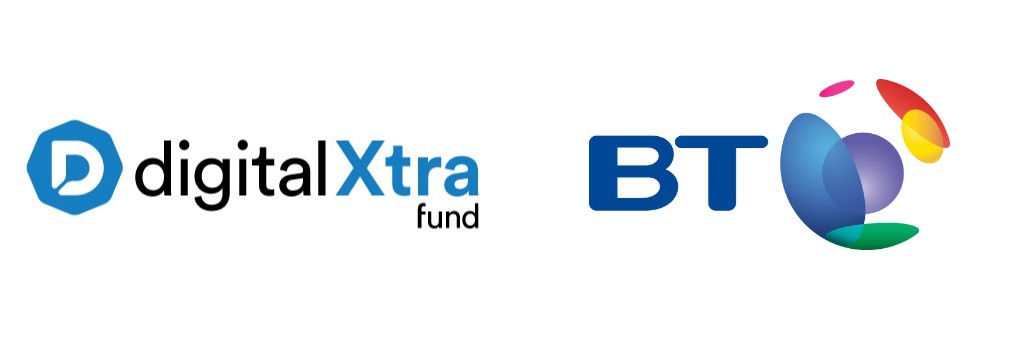
 Digital Xtra Fund was originally established in 2016 and funded through the Digital Scotland Business Excellence Partnership. In March 2017, Digital Xtra Fund was spun out as an independent charity to enable it to work with a wider range of industry partners, with BT Scotland signing up to support the Fund from the outset. Last year, the Fund awarded grant awards for 11 exciting, high-quality initiatives across Scotland ranging from robotic competitions to designing model Formula 1 cars.
Digital Xtra Fund was originally established in 2016 and funded through the Digital Scotland Business Excellence Partnership. In March 2017, Digital Xtra Fund was spun out as an independent charity to enable it to work with a wider range of industry partners, with BT Scotland signing up to support the Fund from the outset. Last year, the Fund awarded grant awards for 11 exciting, high-quality initiatives across Scotland ranging from robotic competitions to designing model Formula 1 cars.